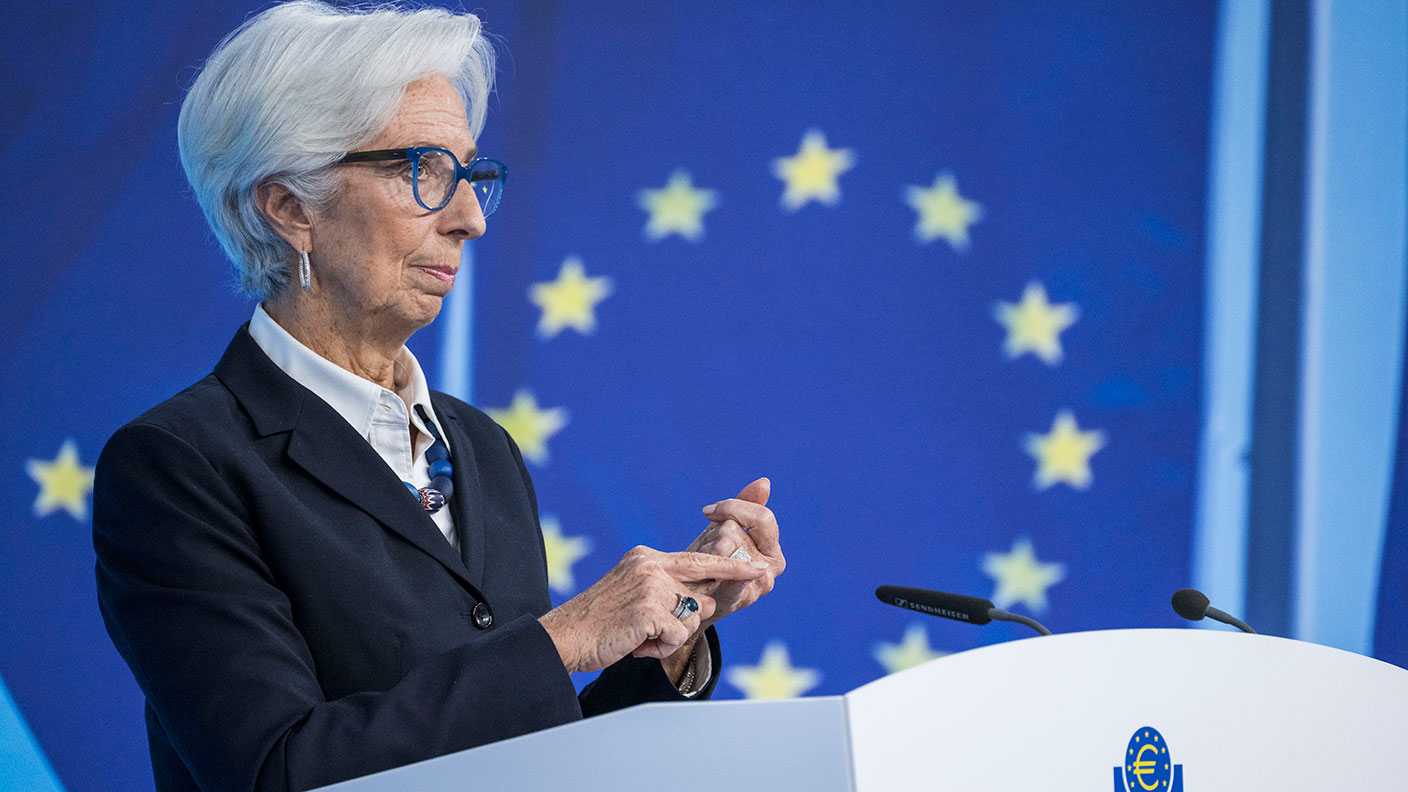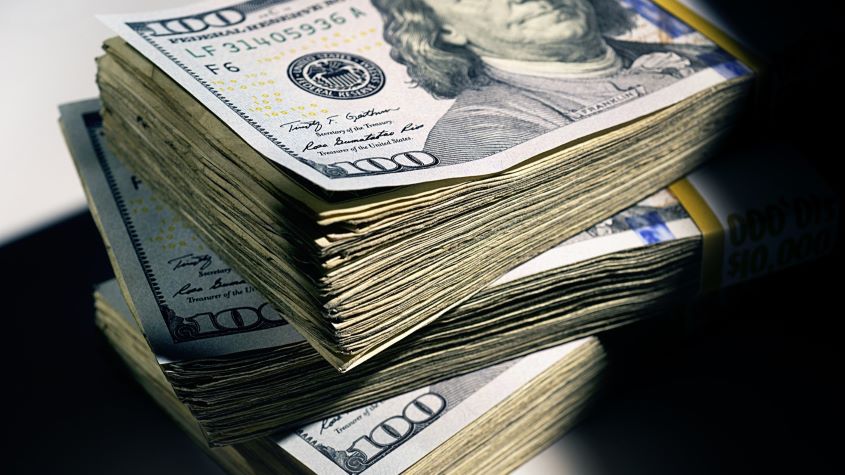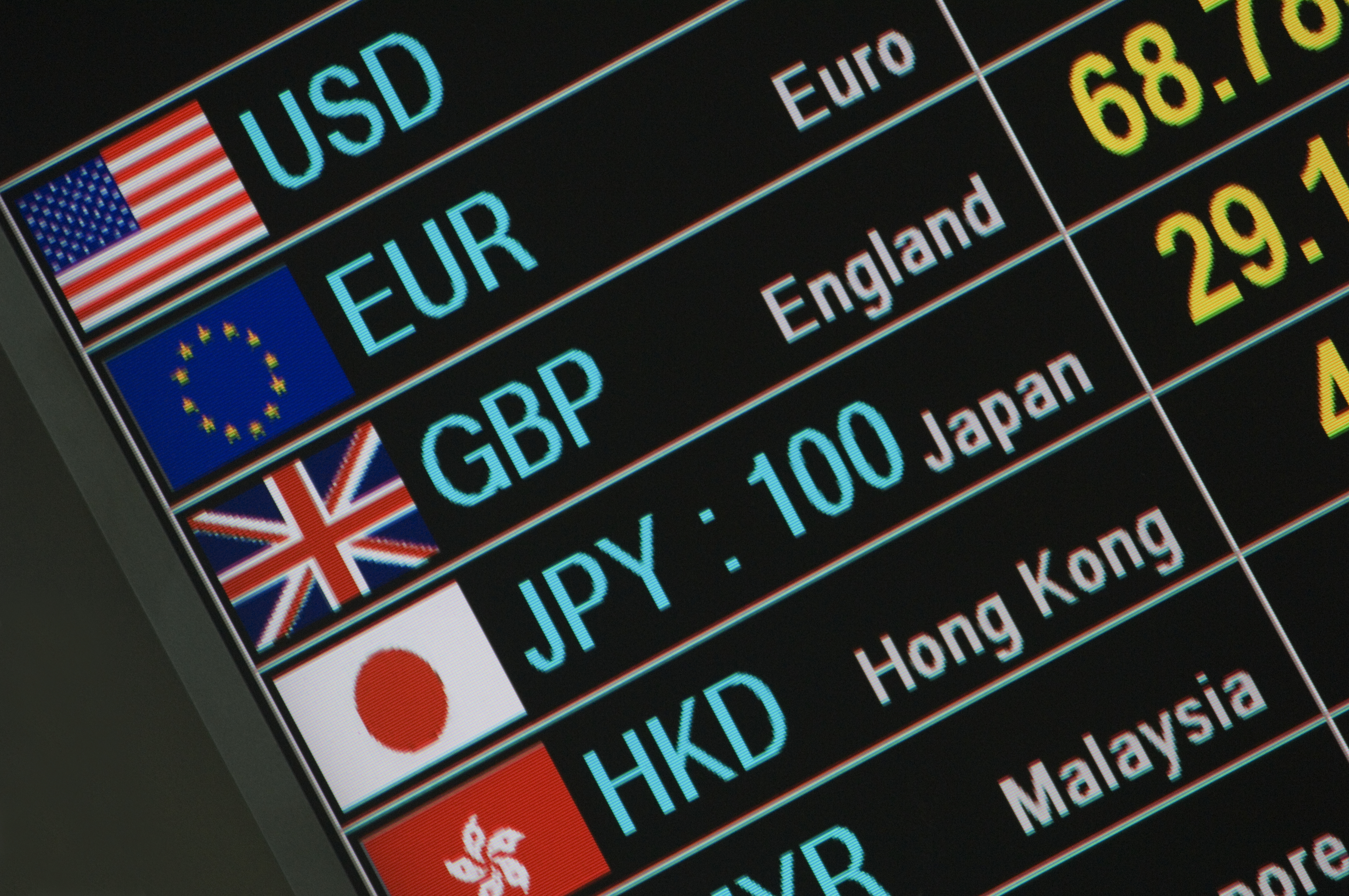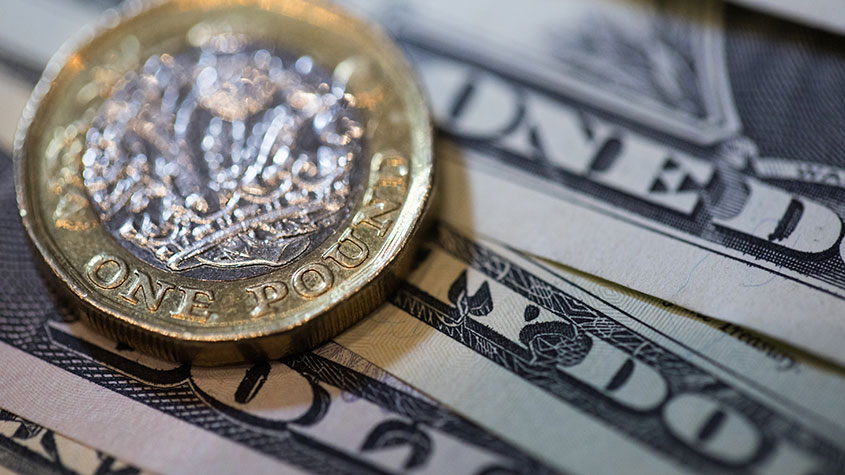Could a stronger euro bring relief to global markets?
The European Central Bank is set to end its negative interest rate policy. That should bring some relief to markets, says John Stepek. Here’s why.


Get the latest financial news, insights and expert analysis from our award-winning MoneyWeek team, to help you understand what really matters when it comes to your finances.
You are now subscribed
Your newsletter sign-up was successful
Want to add more newsletters?

Twice daily
MoneyWeek
Get the latest financial news, insights and expert analysis from our award-winning MoneyWeek team, to help you understand what really matters when it comes to your finances.

Four times a week
Look After My Bills
Sign up to our free money-saving newsletter, filled with the latest news and expert advice to help you find the best tips and deals for managing your bills. Start saving today!
There are a few contenders for the title of “most important price in the world”.
The most important is probably the US ten-year Treasury yield – that is, the interest rate that the US government has to pay to borrow for a decade.
This is generally regarded as the global “risk-free” rate. It’s not too much of an exaggeration to say that every other asset in the world is priced with reference to this slab of US government debt.
MoneyWeek
Subscribe to MoneyWeek today and get your first six magazine issues absolutely FREE

Sign up to Money Morning
Don't miss the latest investment and personal finances news, market analysis, plus money-saving tips with our free twice-daily newsletter
Don't miss the latest investment and personal finances news, market analysis, plus money-saving tips with our free twice-daily newsletter
But a close runner up is the US dollar.
A strong US dollar sucks money out of risk assets
The US dollar is one of the most important prices in the world.
It’s the global reserve currency – everyone needs US dollars. As a result, when the price of US dollars goes up, you can view it as monetary policy getting tighter around the world (that’s an oversimplification, but it’s quite a useful one).
This is at least one reason markets have struggled in recent months; the Federal Reserve, America’s central bank, has been ahead of other economies in terms of raising interest rates, while the US economy has also looked relatively resilient. The US dollar is also a “safe haven” asset, which means that it benefits when investors are feeling jittery.
As a result of all this, the dollar has shot up in value against other major currencies. And risk assets don’t like that one tiny bit. As my colleague Dominic pointed out earlier this month, “if the US dollar keeps rising from here, it’s going to hurt”.
The good news is that after a burst higher, the dollar is now a little lower than it was when Dominic wrote that piece.
One key reason for that is the European Central Bank (ECB) – we’ll explain why in a minute. First, what’s the ECB done?
Well, yesterday, ECB chief Christine Lagarde came out with a blog post in which she – unusually for a central banker – was really quite clear about what the central bank will be doing over the next couple of quarters.
To summarise, she said that the ECB will stop printing money soon, it will start raising interest rates in July, and by the start of October rates will be back to 0% (ie, out of negative territory).
That’s quite an emphatic change for the ECB. As Marcus Ashworth says on Bloomberg, “I struggle to recall any central banker, certainly not one from the ECB, ever having been this definitive about the monetary policy outlook.”
There are probably two reasons for it. One is that the ECB has been lagging somewhat. Inflation has taken off in the eurozone too, but unlike the US, the economy has looked weaker so it’s been a tougher juggling act. But now it looks as though the hawks (for want of a better word) have won.
The second reason is that the euro was threatening to hit parity with the US dollar. In pure market terms, parity is just another number, no more or less significant than 1.01 or 0.99. But of course, it’s not actually just another number; it’s a big scary round number and one that grabs headlines. It’s probably best avoided if possible.
Part of a central bank’s role is to act as the guardian of the currency. That’s even more important in the eurozone than elsewhere because the euro is young and the lack of full political union between all of its member countries means there are still serious fault lines that could threaten its existence.
This risk has retreated greatly. During the sovereign bond crisis of the 2010s, the ECB, under Mario Draghi, effectively won the right to print money to suppress national bond yields – and thus underwrite the solvency of individual eurozone nations – where necessary.
But it’s better not to get to the point where markets decide to test your resolve on that front.
Why a stronger euro might be good news for markets
So why is this good news from a strong dollar front?
Because the euro is the “other” global reserve currency. It’s miles behind the dollar in terms of being stockpiled by central banks around the world, but it is the biggest component in the “DXY” index which measures the dollar’s strength against a basket of rival currencies. It is probably the most widely-watched barometer of dollar strength.
As a result, when the euro bounces against the dollar, DXY tends to fall.
And what with this being quite a hawkish turn for the ECB, the euro rallied from falling as low as $1.03-ish last Friday, to heading above $1.07 now.
Meanwhile, on top of that, it helped that one of the monetary policy setters at the Fed – Raphael Bostic, the head of the Federal Reserve bank of Atlanta – said that it might make sense for the Fed to pause for breath in September on interest-rate rises.
That’s hardly a wildly dovish statement (it implies half-point increases in both June and July), but with the market currently sweating that Fed boss Jerome Powell hopes to inherit the mantle of inflation destroyer from Paul Volcker, any sign that the central bank might relent is welcome to investors.
A weaker dollar would be good news for investors, as it implies that the rush for safe havens will ease and investors will start seeking risk again.
That doesn’t mean it’ll happen. However, one feasible scenario in which this might continue is one in which inflation ebbs (even while remaining high) and other central bank policies start to converge with that of the Fed.
That’s certainly possible over the coming months. Does that mean you should be piling in as if everything is back to the tech bubble days? Not at all; the environment has changed and the winners over the next phase will differ from those of the last.
But it does imply that the “crash-y” behaviour we’ve seen since the start of this year might be due a breather. Fingers crossed.
For more see:
If the US dollar keeps rising from here, it’s going to hurt
The tech bubble has burst, but I still want a Peloton
Get the latest financial news, insights and expert analysis from our award-winning MoneyWeek team, to help you understand what really matters when it comes to your finances.

-
 Japanese stocks rise on Takaichi’s snap election landslide
Japanese stocks rise on Takaichi’s snap election landslideJapan’s new prime minister Sanae Takaichi has won a landslide victory in a snap election, prompting optimism that her pro-growth agenda will benefit Japanese stocks
-
 Alphabet 'is planning a 100-year bond': would you back Google for 100 years?
Alphabet 'is planning a 100-year bond': would you back Google for 100 years?Google owner Alphabet is reported to be joining the rare century bond club
-
 The challenge with currency hedging
The challenge with currency hedgingA weaker dollar will make currency hedges more appealing, but volatile rates may complicate the results
-
 It's time to back the yen, says Dominic Frisby
It's time to back the yen, says Dominic FrisbyThe Japanese yen has been weak for a long time, says Dominic Frisby. That may soon change.
-
 Why you should keep an eye on the US dollar, the most important price in the world
Why you should keep an eye on the US dollar, the most important price in the worldAdvice The US dollar is the most important asset in the world, dictating the prices of vital commodities. Where it goes next will determine the outlook for the global economy says Dominic Frisby.
-
 What is FX trading?
What is FX trading?What is FX trading and can you make money from it? We explain how foreign exchange trading works and the risks
-
 The Burberry share price looks like a good bet
The Burberry share price looks like a good betTips The Burberry share price could be on the verge of a major upswing as the firm’s profits return to growth.
-
 Sterling accelerates its recovery after chancellor’s U-turn on taxes
Sterling accelerates its recovery after chancellor’s U-turn on taxesNews The pound has recovered after Kwasi Kwarteng U-turned on abolishing the top rate of income tax. Saloni Sardana explains what's going on..
-
 Why you should short this satellite broadband company
Why you should short this satellite broadband companyTips With an ill-considered business plan, satellite broadband company AST SpaceMobile is doomed to failure, says Matthew Partridge. Here's how to short the stock.
-
 It’s time to sell this stock
It’s time to sell this stockTips Digital Realty’s data-storage business model is moribund, consumed by the rise of cloud computing. Here's how you could short the shares, says Matthew Partridge.